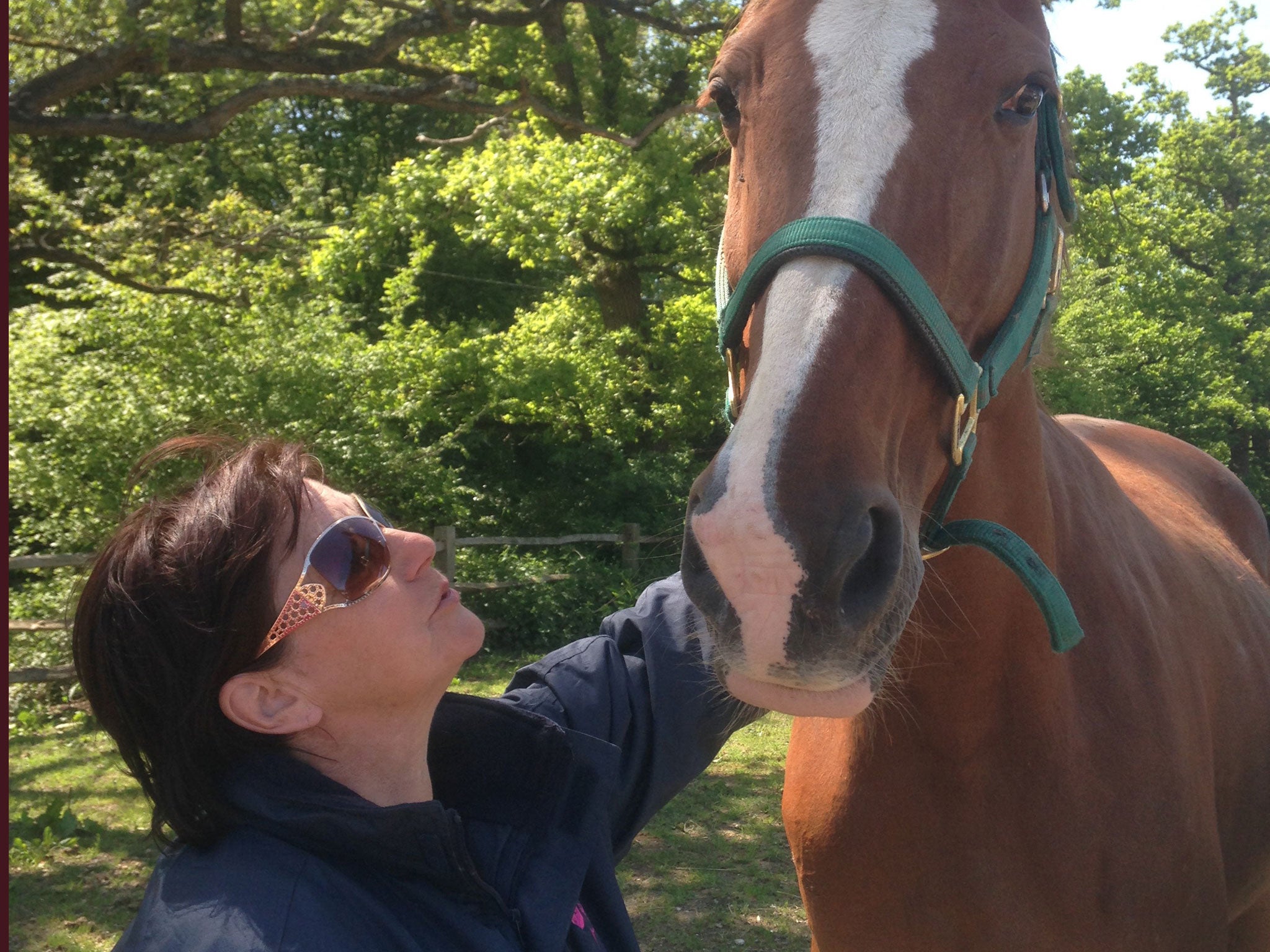
For the last twelve years, Carol Jackson has made it her life’s work to care for horses left by their owners because they were injured, unhealthy or just too expensive to keep.
She runs Kilmarnock Horse Rescue in Crawley, West Sussex, taking in horses from around the country. Without rescue centres like Kilmarnock, horse owners who cannot care for their animals would have little choice but to kill them. Carol welcomed her first rescue, Oliver, in 2003. Now 32 years old, a fairly advanced age for a horse, Olly (as Carol calls him) is still in good health and good spirits.
After her first rescue, Carol’s skills as a horse caregiver spread by word of mouth and, as she puts it, “one thing led to another!” Soon she was caring for retired and unwanted horses from around the country, including horses that were formerly in service with the Household Cavalry.
Today, Kilmarnock cares for over 30 horses, but its mission goes far beyond equine care. Carol also gives back to the local community, welcoming children with autism and other learning difficulties on a regular basis to familiarise them with farm animals and rural life. “It’s absolutely fantastic to see the connection between the children and the animals,” she says.
Like many rescue organisations, Carol says she has noticed an increase in the number of animals needing a home since the financial crisis in 2008: “Many people tried to keep their horses, but it soon became clear that they just can’t afford to look after them.” Her experience mirrors a trend seen across Britain. In the UK there are presently more horses than people who want them, leading to a collapse of value in the equine market. At the bottom end of the market, the value of horses has fallen to a point where they are so cheap as to be treated as disposable commodities: in other words, people just give up their horses or have them put to sleep.
“We have definitely seen a huge increase in the number of horses being simply abandoned,” says Lee Hackett, Director of Equine Policy for the British Horse Society. “A huge contributor to the problem is that Britain has a huge horse overpopulation problem thanks to decades of unchecked and indiscriminate breeding.” In an effort to reduce equine overpopulation, the BHS has focused its efforts on running castration clinics around the country. “The more colts and stallions we can castrate,” says Mr Hackett, “the fewer unwanted foals will be born, which is vital for welfare.”
For now, however, organisations like Carol’s are the mainstay of the equine welfare movement. Kilmarnock Horse Rescue recently became a registered charity and is in frequent contact with the RSPCA, as well as the BHS, to shape its policies and approaches to equine care. Nonetheless, Kilmarnock still needs help, especially as they prepare to build new stables to take in even more horses. “I’ve been around horses all my life,” says Carol, “but only since I started taking in rescues, have I really been able to help these beautiful animals.”
To support Kilmarnock Horse Rescue, visit their Facebook group.
To support the British Horse Society, visit their website.
Subscribe to Independent Premium to bookmark this article
Want to bookmark your favourite articles and stories to read or reference later? Start your Independent Premium subscription today.

Join our commenting forum
Join thought-provoking conversations, follow other Independent readers and see their replies